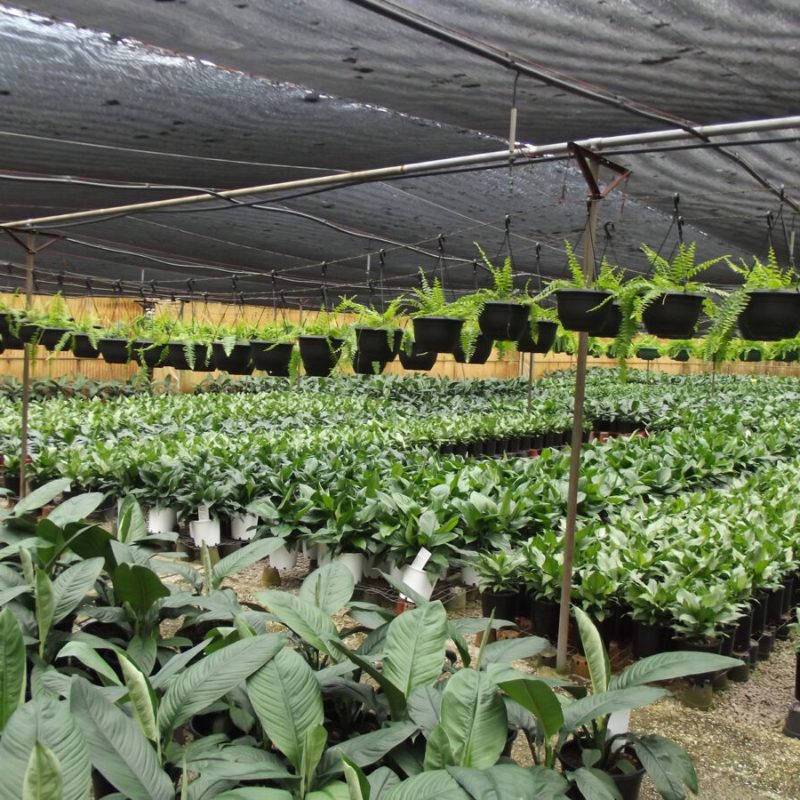Queensland horticulture is worth around $1 billion annually, making it one of the largest parts of the agriculture sector, however many Queensland greenlife industry growers and retailers are being squeezed like never before.
In fact, we are seeing the longest sustained period of low business confidence in the past 30 years.
In many cases, our costs are growing faster than our plants. A new survey shows greenlife businesses face a double whammy in soaring input costs and a subdued economy. What’s more, almost half of the industry’s operators expect their profits to decline further over coming months.
When greenlife businesses fail, it affects more than just a family and their employees. The market becomes less competitive, corporations gain more market power, and customers are forced to pay more for the plants they buy.
Even though our industry is worth billions, the vast majority of greenlife businesses are small and medium enterprises who do not have the capital reserves or supply chain power to navigate an increasingly complex trading environment.


We believe independent growers and retailers are critical to keep Queensland horticulture competitive and sustainable. Smaller businesses deserve special policies and special support.
We want all levels of government to drastically reduce the red tape which is slowly strangling small businesses. 91% of Greenlife Industry Qld members said government over-regulation is a constraint on their business. Fire ant compliance is a significant red tape burden, but regulations are a concern across the board.
We need the Queensland Government to do more to alleviate the cost of power for small businesses. For their size, growers use a lot of power, and we are paying now for years of government inaction to stabilise electricity prices. While the Federal Government is responsible for national energy policy, the Queensland Government must invest more wisely in both regional power generation and transmission infrastructure. Co-investing with nursery businesses to implement more on-farm generation and storage would make Queensland horticulture more sustainable, and take pressure off our already struggling power networks.
Payroll tax is a major drag on medium businesses, and acts as a disincentive for successful small growers. Growing plants is a labour intensive exercise, and payroll tax unfairly penalises our industry in particular. Payroll tax is a tax on jobs and a plan must be developed to phase it out and, over time, abolish it completely.
The burden of land tax on small businesses must be addressed by capping increases and implementing phased assessments.
We call on the Queensland Government to establish a Greenlife Industry Small Business Growth Fund, a state or federal co-investment fund to support small nursery businesses with modernisation projects, site expansion, workforce development, and entry into new markets (e.g. export, urban greening, online retail).
51 % of Queensland nursery growers say they have not experienced any productivity improvements in the past five years, due in large part to the extra input costs and wage increases they are incurring. 82% of growers say they would appreciate more support to increase efficiencies and implement productivity-saving technologies into their businesses. We call on the Queensland Government to provide funding to support digital transformation in the greenlife industry. This may include grants or co-contributions to aid in digital adoption projects such as online sales platforms, inventory management systems, customer engagement tools, digital marketing and e-commerce training. This would improve competitiveness and help smaller nurseries reach broader markets.
Only 4% of small businesses in Queensland agree that it’s easy to sell to government. Government procurement programs say they favour small and medium businesses by applying a weighting to SMEs, but in reality we do not believe this is effective. Government buyers need to be more transparent in their dealings and they must make applying for government work simpler and less time-consuming.
Insurance is becoming unaffordable for greenlife businesses, especially those based in Queensland’s northern parts. Governments need to step in to address the market’s failure and either work with insurancers to create affordable coverage, or invest in reinsurance pools to bring premiums down. Stamp duty must be abolished on insurance premiums.
Both the State and Federal Governments need to increase support for horticulture apprenticeships and traineeships, including financial incentives for growers to hire and train apprentices. They should provide funding support for partnerships between industry and TAFE to ensure training programs are relevant and include on-the-job learning.